The balance of the U.S. Congress, the leadership of 36 states and thousands of potentially pivotal lower-level positions are on the ballot in Tuesday's midterm elections.
Read more:
What are the midterms and why do they matter?
The potential consequences are huge: for the lives of Americans, for the presidency of Joe Biden and for Congress' approach to issues that affect the world.
So what do key indicators suggest ahead of election day, and what issues do Americans care about most when they cast their ballots?
Republicans lead in generic ballot
Each election is different – local issues, candidate quality and demographics matter – but amid the forecasts and race-by-race polls, the generic ballot gives a simple indication of voter sentiment.
The generic ballot is the response to a simple question: which party would you vote for if there were to be an election tomorrow?
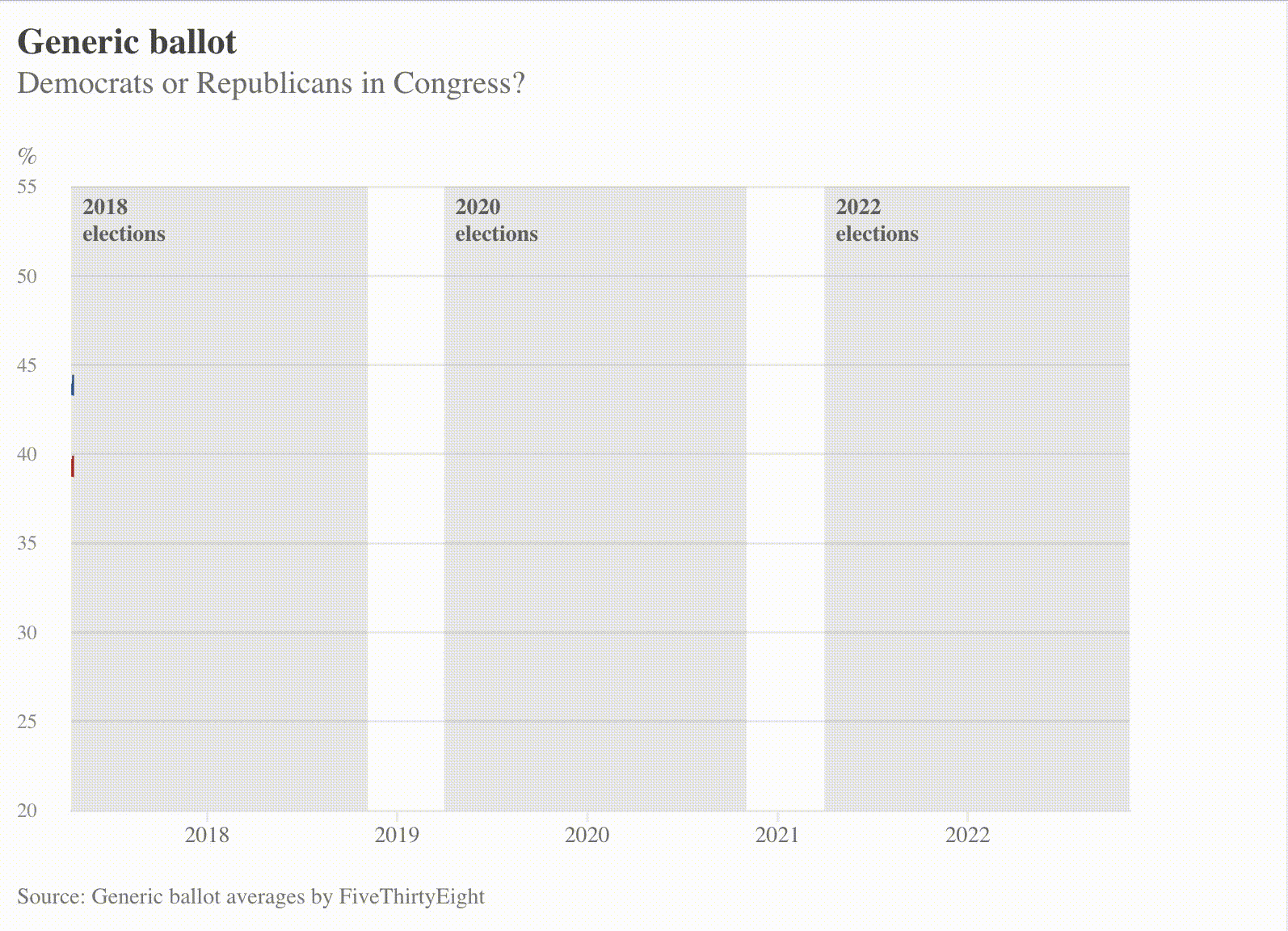
Heading into election day, the Republicans hold a slender lead in FiveThirtyEight's aggregate of generic ballot polls: 46.6 percent to 45.5 percent. The Republicans held a two-point lead for much of 2022, but feel behind the Democrats in the wake of the Supreme Court overturning of Roe v Wade, before retaking the lead in late October.
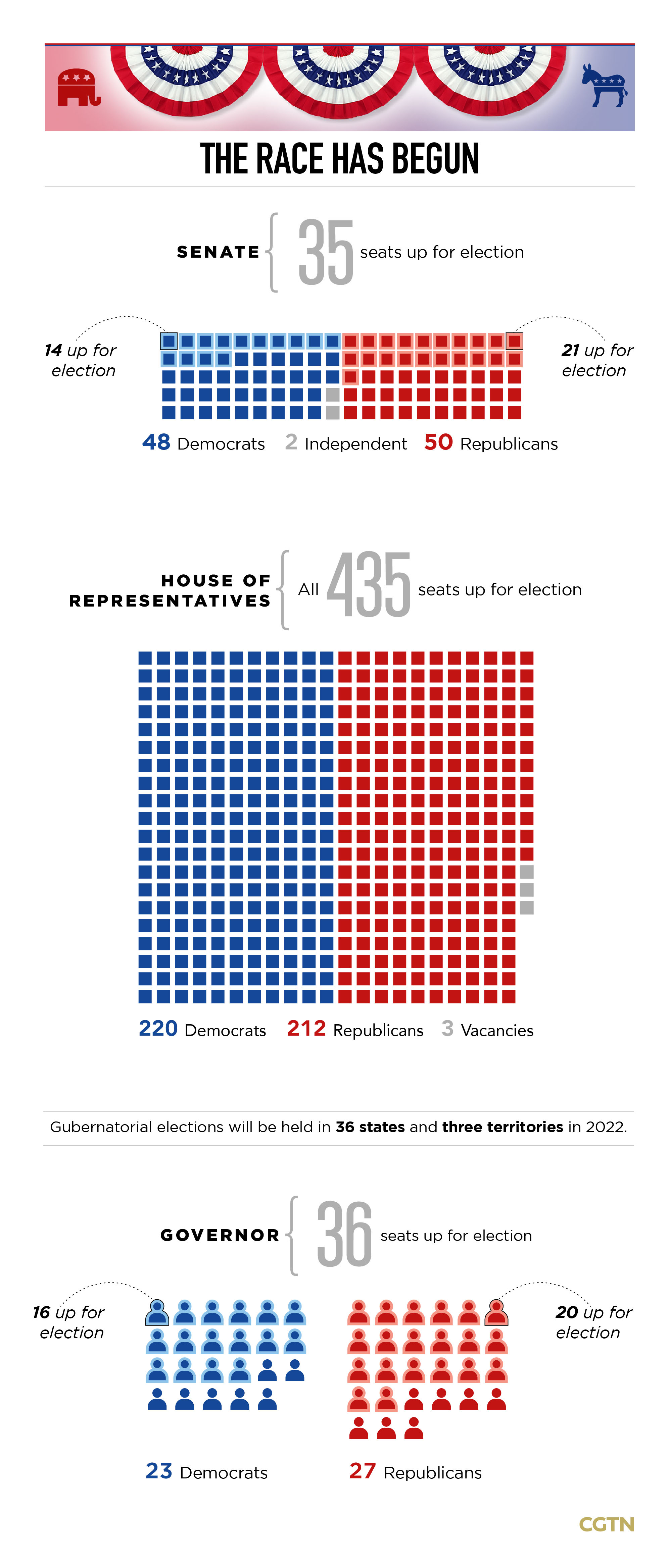
The 1.1 point lead in the final polls before the elections is very marginal, indicating a tight finish and reflecting the polarization of American politics.
The generic ballot is echoed by more complex forecasts by FiveThirtyEight and the Economist: based on their algorithms, the Republicans are favored to win the House – where all 435 seats are up for election – while the Senate, with 35 of the 100 seats contested this year – is neck and neck.
Biden approval dips beneath Trump
Biden isn't on the ballot, but midterms are historically seen as referendums on the occupant of the White House, so the president's popularity has generally been an important indicator in past elections – though the party in the White House nearly always suffers big midterm losses.
Low ratings for a president have historically been seen as a precursor to low voter enthusiasm and turnout among his party. Obama's approval rating was -3.8 points when the Democrats lost 63 seats in the House and six in the Senate in 2010, while Trump's was -10.5 points in 2018 when Republicans lost 40 seats in the House and gained two in the Senate.
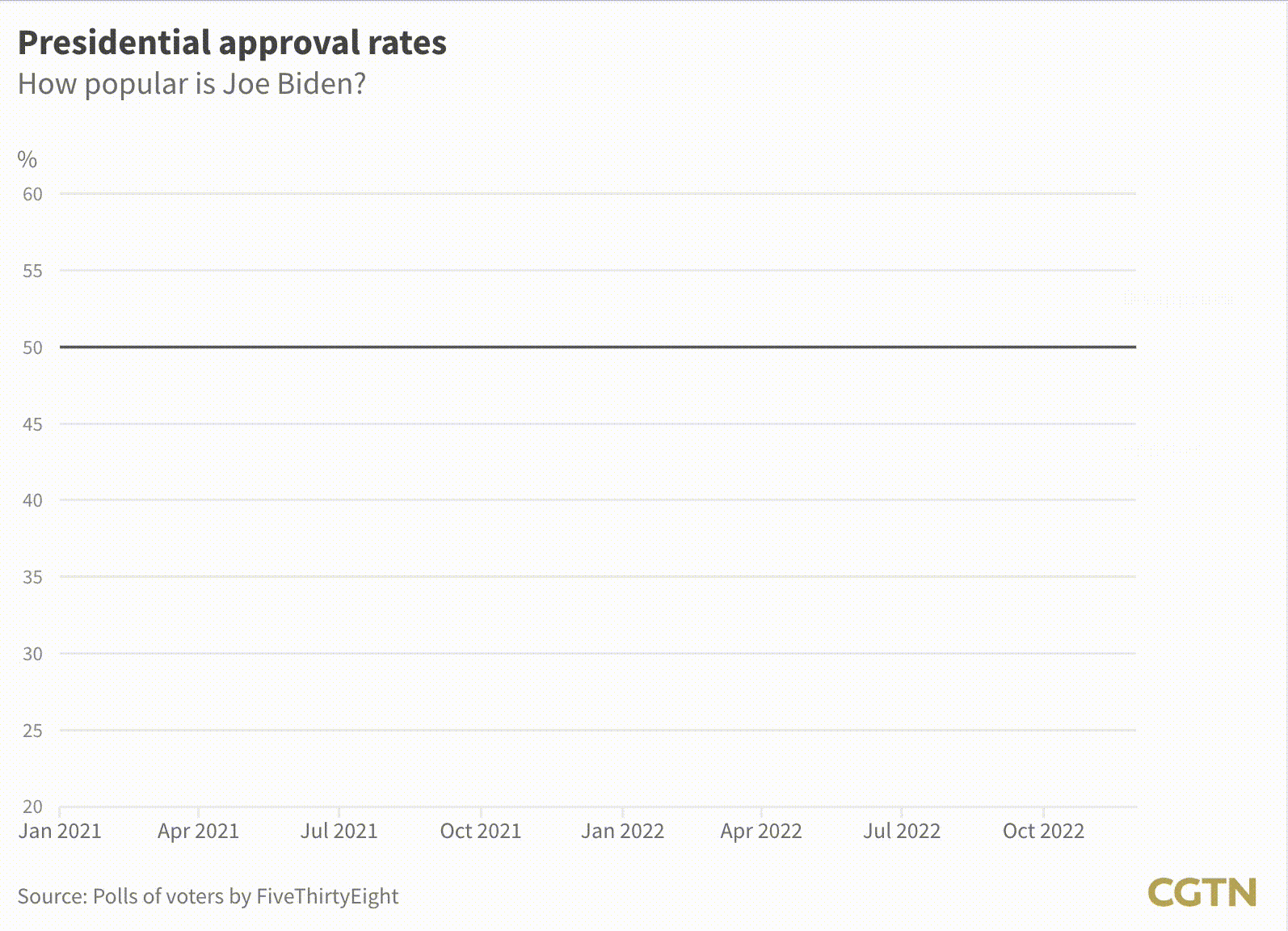
And if the results were decided on Biden's ratings, the Democrats would be in serious trouble. His net approval is currently -10.8, marginally worse than Donald Trump (-10.5) at this stage if his presidency and significantly worse than any other modern day president.
However, the polls suggest that voters are disconnecting their view of Biden from the way they plan to vote in the midterms, perhaps because of hyper partisanship. So while majority of voters don't see him positively, polls suggest a significant number will back his party anyway, with issues like restrictions to abortion access and opposition to Trump potentially propping up the Democratic vote.
Inflation soaring, unemployment low
The economy is the number one issue for Americans going into the midterms, according to Pew research. In an October survey by Pew, 79 percent of registered voters polled said the economy was "very important" when deciding who to vote for in the 2022.
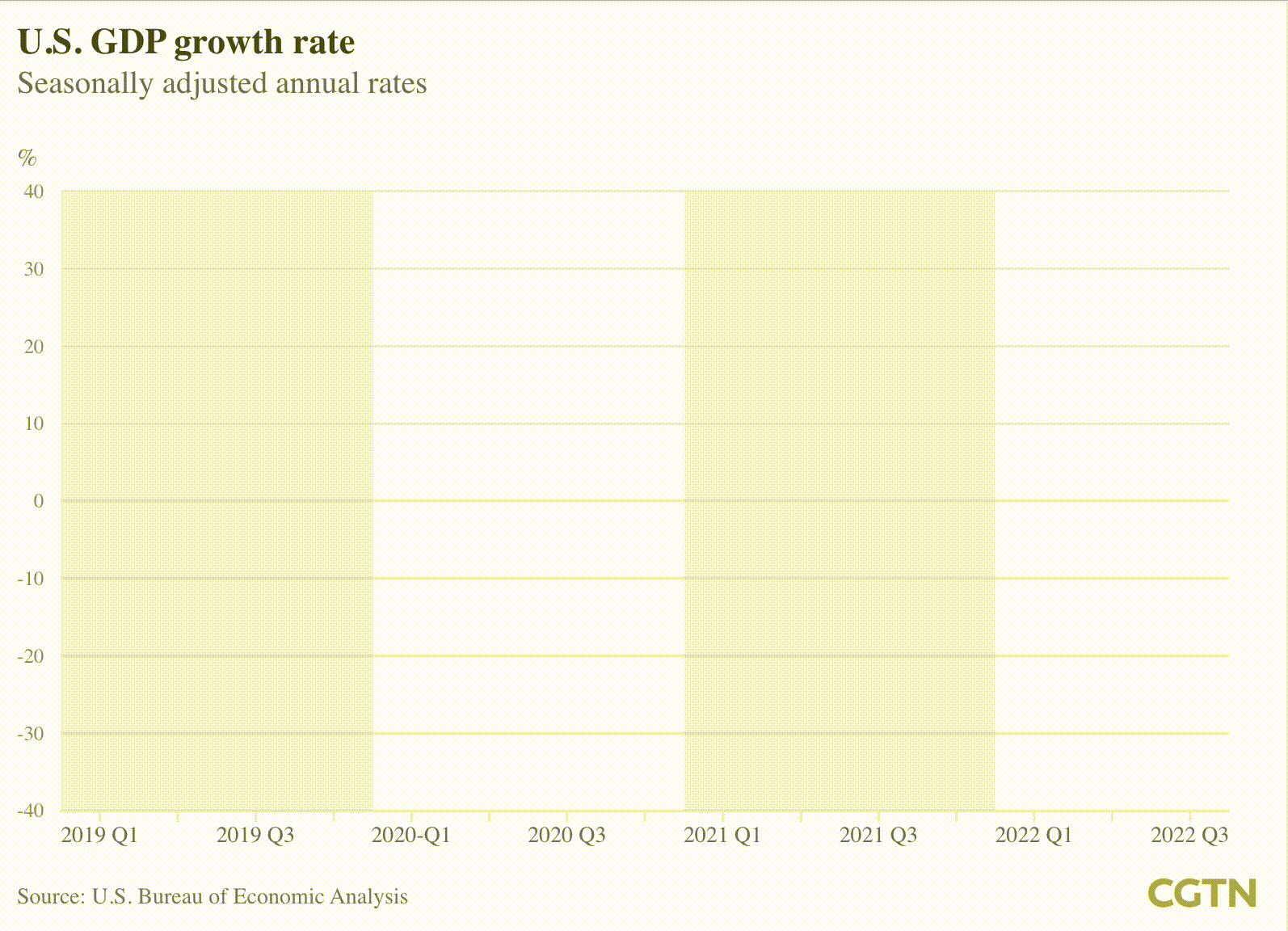
An overwhelming 82 percent of respondents told Pew the U.S. economy was in "poor" shape, with just 16 percent describing it as "good." Although the economy suffered two consecutive quarters of negative growth in 2022 – often the definition of a recession – officially it was not, because the National Bureau of Economic Research holds a different standard.
The NBER said that "given a strong labor market and corporate earnings growth" a recession was unlikely, and it is true that unemployment has remained at a low level despite stalled growth.
But it's what people feel rather than the macro figures that matter, and the polls suggest voters aren't feeling better off. Inflation has soared to over 9 percent this year, signaling high gas and food prices.
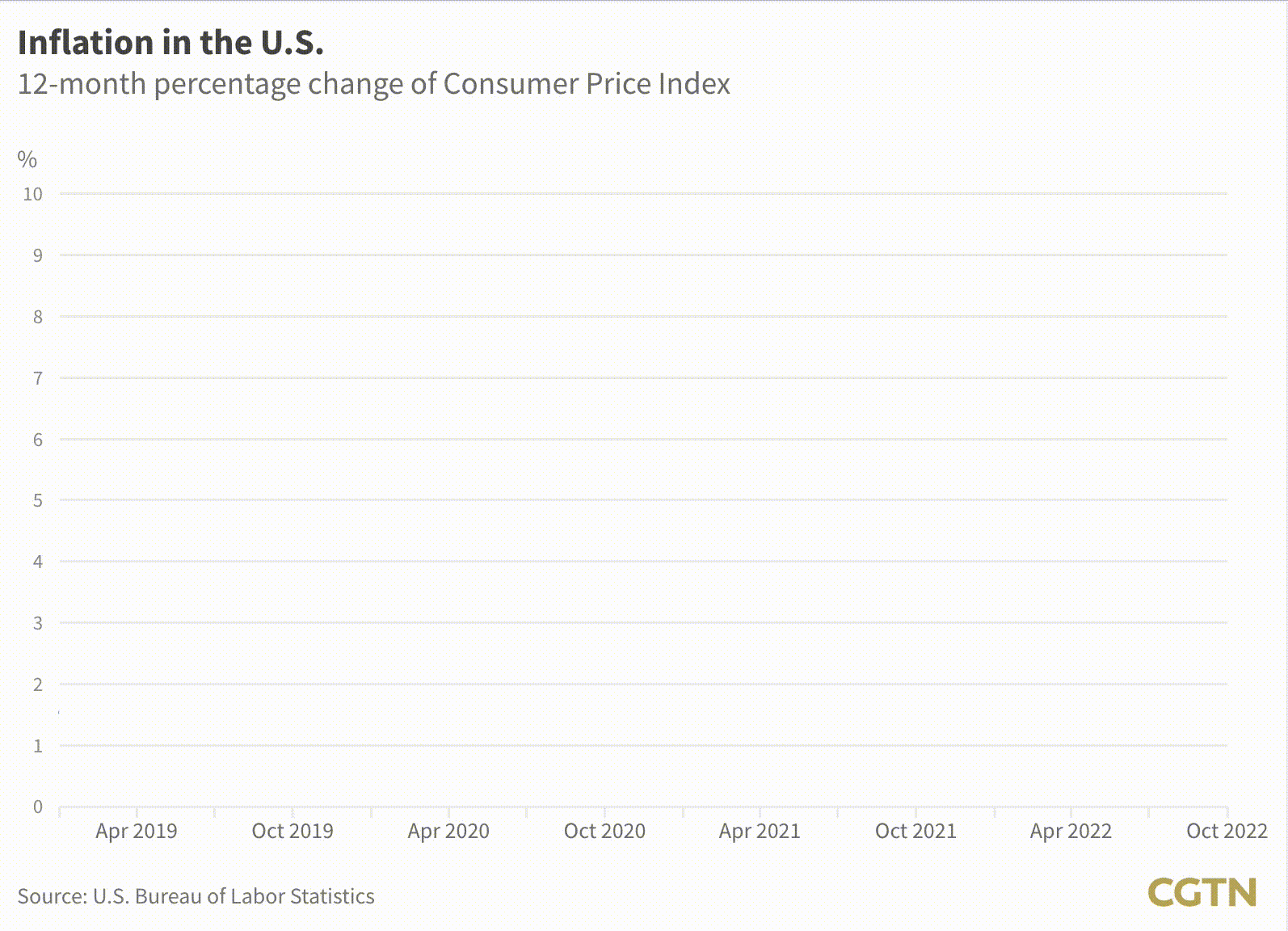
Crime and healthcare, immigration and abortion access
Surveys suggest voters are starkly divided along party lines on most major issues.
The top three issues for registered Republican voters going into the elections – and the issues the campaigns have hammered on the campaign trail and in advertising – are the economy, violent crime and immigration, according to Pew research.
Perhaps as significant in terms of the potential Republican priorities in office are the issues the party's voters think are not significant: only 7 percent see investigating Trump as very important, while the number for climate change is 9 percent, COVID-19 12 percent, and issues to do with race 13 percent.
The most important themes for Democrats are the future of democracy in the U.S., healthcare and abortion, according to Pew. The only major issue which fewer than 10 percent of registered Democratic voters view as "very important" is investigating Biden and his administration.
(Graphics: Zhao Hong, Mukesh Mohanan)